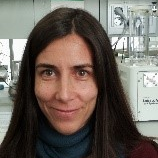Connection of Marine Natural Products and Cell Apoptosis—II
A special issue of Marine Drugs (ISSN 1660-3397).
Deadline for manuscript submissions: closed (31 December 2020) | Viewed by 3130
Special Issue Editors
Interests: metabolic disorders; cancer; inflammation; oxidative stress; natural compounds
Special Issues, Collections and Topics in MDPI journals
Interests: natural compounds; polyphenols; marine compounds; cancer; antimicrobial; skin; cosmetics
Special Issues, Collections and Topics in MDPI journals
Interests: natural compounds; polyphenols; metabolic disorders; obesity; cancer; antimicrobial; skin; cosmetics
Special Issues, Collections and Topics in MDPI journals
Special Issue Information
Dear Colleagues,
The process of cell death is essential for the normal development and maintenance of the multicellularity of the organism. Programmed cell death is defined as the death of a cell in any physiopathological condition and refers to three main types: apoptosis, autophagy, and necroptosis. Although basal autophagy and apoptosis are essential for the maintenance of cellular and organism homeostasis, abnormal regulation of these processes contributes to the pathogenesis of various human diseases, including obesity, aging, and cancer. Thus, a better understanding of programmed cell death pathway alterations may lead to the identification of new drugs and to the development of new therapies against these abnormalities.
Marine natural products represent an almost unlimited source for the identification of novel molecules with anti-inflammatory, antihypertensive, and anti-tumorigenesis properties, possibly useful in the treatment or prevention of new anticancer drugs.
This Special Issue offers a review of our current understanding of the signaling pathways regulating cell death and highlights marine natural products that can affect these signaling pathways, with special interest in the “Connection of Marine Natural Products and Cell Apoptosis”. The putative molecular mechanisms of these extracts will be studied with special emphasis to metabolic alterations that contribute to the proliferation and aggressiveness of the tumor.
As Guest Editors, we cordially invite you to contribute to this Special Issue by submitting original research articles, long and mini review papers, short notes, and opinions according to your expertise.
Prof. Dr. María Herranz-López
Prof. Dr. Enrique Barrajon
Prof. Dr. Vicente Micol
Guest Editors
Manuscript Submission Information
Manuscripts should be submitted online at www.mdpi.com by registering and logging in to this website. Once you are registered, click here to go to the submission form. Manuscripts can be submitted until the deadline. All submissions that pass pre-check are peer-reviewed. Accepted papers will be published continuously in the journal (as soon as accepted) and will be listed together on the special issue website. Research articles, review articles as well as short communications are invited. For planned papers, a title and short abstract (about 100 words) can be sent to the Editorial Office for announcement on this website.
Submitted manuscripts should not have been published previously, nor be under consideration for publication elsewhere (except conference proceedings papers). All manuscripts are thoroughly refereed through a single-blind peer-review process. A guide for authors and other relevant information for submission of manuscripts is available on the Instructions for Authors page. Marine Drugs is an international peer-reviewed open access monthly journal published by MDPI.
Please visit the Instructions for Authors page before submitting a manuscript. The Article Processing Charge (APC) for publication in this open access journal is 2900 CHF (Swiss Francs). Submitted papers should be well formatted and use good English. Authors may use MDPI's English editing service prior to publication or during author revisions.
Keywords
- Apoptosis
- Marine natural products
- Cell biology
- ROS
- DNA damage
- Mitochondrial depolarization
- Autophagy
- Cancer
- Metabolic disorders








